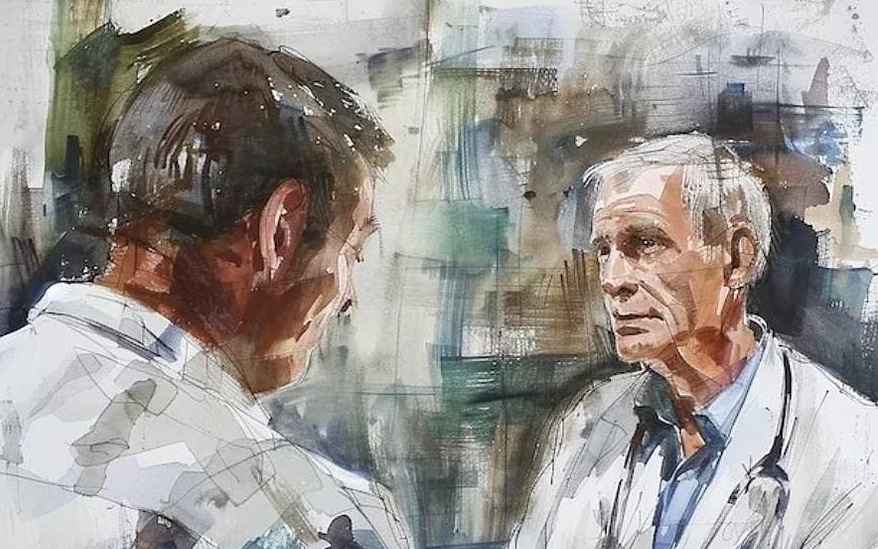






See listing of Recent and Most Popular articles on the Home Page
Health & Wellness
Category: Health & Wellness / Topics: Lifestyle, General • Optimal Aging • Wellness
Don't Ignore Your Heart
by Elizabeth Millard / Prevention
Posted: December 25, 2021
Shortness of breath, leg swelling, and weight gain could all be signs of trouble, along with others…
Elizabeth Millard - Prevention
Editor's Note: This article, found on Pocket, was originally published on Prevention on February 11, 2020. It is a good reminder to guard your heart health, at any time of year, but espeically in this second COVID holiday season. Following is an excerpt that summarizes the 10 signs, with a link to the full article at the bottom of the page.
There are two major heart attack symptoms that everyone is aware of: sudden and severe chest pain that feels like a clenched fist and pain radiating down the arm. But it’s possible other warning signs may have cropped up on the way to that cardiovascular event, and not been recognized as heart failure.
“Unlike an actual heart attack, heart failure can happen gradually, and that’s why people often mistake the symptoms for something else, like indigestion or being out of shape,” says Robert Greenfield, M.D., cardiologist and medical director of non-invasive cardiology and cardiac rehabilitation at MemorialCare Heart & Vascular Institute at Orange Coast Medical Center in Fountain Valley, Calif. “But the longer you go without seeing these as signs of heart trouble, the more damage you may have over time.”
Sometimes called congestive heart failure, this condition occurs when there are problems associated with how the heart is pumping blood. That doesn’t mean your heart has suddenly stopped working. In some cases, the heart may not pump with enough force to deliver the blood into your circulatory system, and in other cases, not enough blood is getting into your heart so the amount pumped out is reduced. As symptoms worsen, emergency treatment may be required.
According to the National Heart, Lung, and Blood Institute, about 5.7 million people in the U.S. have heart failure, and it can affect both children and adults. Currently, there’s no cure, but treatments like lifestyle changes and medications can make a huge difference in terms of longevity and quality of life.
Like many conditions, the earlier you catch it, the better your outlook. Here are 10 signs that your ticker may not be operating the way it should. [These have been compressed into a numbered list. See the link below for the full article, which expands on each point.]
- You can't seem to catch your breath—People will feel “air hunger,” meaning no matter how deeply you inhale, you don’t feel like you’re getting enough oxygen.
- Exercise seems much harder than it should be—If you’re trying to get in an actual workout, increased activity raises your heart rate, which means it’s trying to pump faster and you could find yourself really gasping for air then.
- Lying down flat is a major problem—You can often find some relief through propping your head up, relieving the pressure on your lungs, which is why a cardiologist might ask how many pillows you use to avoid feeling winded.
- Legs and feet swell up—Also called edema, this puffiness in your legs, arms, and feet tends to affect both sides, and causes stretched, shiny skin..
- You’re suddenly gaining weight—This can happen suddenly, she adds, like seeing an additional five pounds over a few days, particularly in the belly.
- …or having to pee much more often—All that fluid you’re retaining has to go somewhere eventually. That’s when you may find yourself always having to pee, especially multiple times in the middle of the night. Unfortunately, some people try to correct the issue by cutting down on water intake during the day, but this can make fluid retention worse, since the body starts holding on to water in order to prevent dehydration.
- You’re tired all the time—The way the body compensates during heart failure is to divert blood to vital organs, especially the brain, and channel it away from less-important areas like your muscles and limbs. That can lead to a feeling of weakness and fatigue.
- Nausea or lack of appetite have come out of nowhere—You might have a range of effects, including indigestion, lack of appetite, nausea, and constipation.
- You’re lightheaded or feel confused often—Even though the heart prioritizes brain function when there’s an issue, heart failure might be caused by a circulation issue . . . that can lead to symptoms like dizziness, mild disorientation, confusion, or even challenges with memory and concentration. In extreme cases, you may experience fainting.
- And your hands and feet are always cold—Multiple woolen layers of socks and mittens are doing nothing to help your icy feet and hands? . . . it’s common for people to have colder hands and feet in general. However, if you experience this as well as several others on the list, they could all be connected.
[If this list represents what you're experiencing] it’s critical to see your doctor. Although there are certain tactics that can help address minor symptoms—prop your head up at night, drink more water, and don’t smoke—this isn’t an issue to try to tackle on your own.
Of course, there are great heart-healthy lifestyle habits that will be invaluable for long-term change. But if you’re experiencing any of the symptoms listed here, it’s possible you may need short-term interventions, like medication, to make sure your heart gets back on track.
Read the full article for additional details.
Search all articles by Elizabeth Millard
Posted: December 25, 2021 Accessed 391 times
![]() Go to the list of most recent Health & Wellness Articles
Go to the list of most recent Health & Wellness Articles
![]() Search Health & Wellness (You can expand the search to the entire site)
Search Health & Wellness (You can expand the search to the entire site)
![]() Go to the list of Most Recent and Most Popular Articles across the site (Home Page)
Go to the list of Most Recent and Most Popular Articles across the site (Home Page)
 Loading requested view...
Loading requested view...